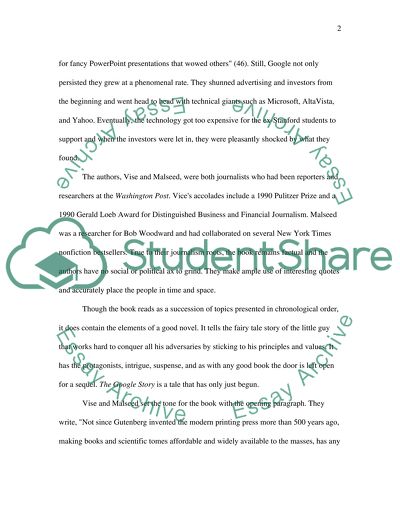Cite this document
(“The Google Story Book Report/Review Example | Topics and Well Written Essays - 1500 words”, n.d.)
The Google Story Book Report/Review Example | Topics and Well Written Essays - 1500 words. Retrieved from https://studentshare.org/miscellaneous/1521559-the-google-story
The Google Story Book Report/Review Example | Topics and Well Written Essays - 1500 words. Retrieved from https://studentshare.org/miscellaneous/1521559-the-google-story
(The Google Story Book Report/Review Example | Topics and Well Written Essays - 1500 Words)
The Google Story Book Report/Review Example | Topics and Well Written Essays - 1500 Words. https://studentshare.org/miscellaneous/1521559-the-google-story.
The Google Story Book Report/Review Example | Topics and Well Written Essays - 1500 Words. https://studentshare.org/miscellaneous/1521559-the-google-story.
“The Google Story Book Report/Review Example | Topics and Well Written Essays - 1500 Words”, n.d. https://studentshare.org/miscellaneous/1521559-the-google-story.


